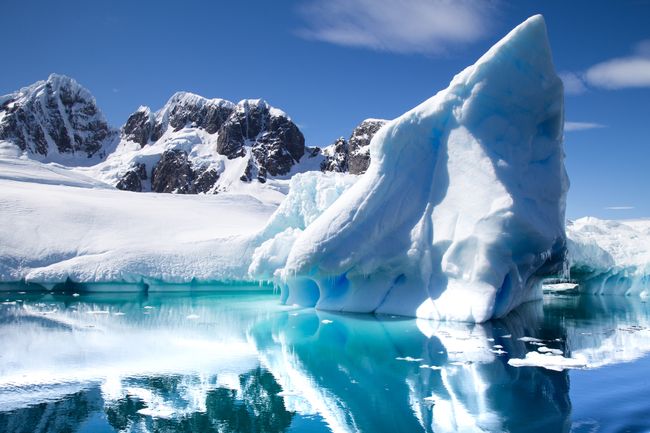Science
Related: About this forumScientists discover evidence of ancient, nitrogen-rich Martian groundwater hiding in Antarctica
By Rafi Letzter - Staff Writer 4 days ago
Could life have swum in those waters billions of years ago?

Pieces of Mars made their way across the solar system to Antarctica, where they were discovered
in the 1980s.
(Image: © Shutterstock)
A bit of 4-billion-year-old rock blasted off the Martian surface about 15 million years ago and eventually landed in Antarctica, where explorers found it in 1984. In the decades since, organic compounds found in that meteorite have been sources of controversy: Did they come from Mars, or did the meteorites get contaminated on Earth? Now, a team of Japanese researchers has reexamined the meteorites, and say they found traces of ancient oceans, rich in useful carbon and nitrogen — key ingredients for life.
The meteorite, known as Allan Hills 84001, after the location where it was first discovered, has long been known to contain organic materials. The hunk of space rock has been the subject of paper after paper after paper debating whether those materials came from Earth or Mars. There's even been a controversial claim, as Live Science sister site Space.com reported in 2016, that evidence for actual Martian life is hiding out in the rock.
The trouble was that researchers could never rule out the possibility that organic molecules from Antarctica got mixed up with the meteorites during their centuries locked in ice. Alternatively, the meteorite could have been contaminated with organic matter in a laboratory.
But now the researchers have taken extraordinary pains to rule out those possibilities. Their results suggest the organic compounds come from Mars — and for the first time show the meteor also contains nitrogen-bearing organic materials. Most nitrogen we've discovered on Mars is locked up in inert nitrogen gas (N2) or in harsh chemicals in the soil that break down organic matter, the researchers wrote. These newly-discovered organic nitrogen compounds in the carbonate suggest that if life did exist on Mars, it would have had access to the same forms of nitrogen that Earthly life relies on.
More:
https://www.livescience.com/hidden-organic-nitrogen-water-evidence-life-mars.html?utm_source=notification
mopinko
(73,426 posts)sheesh people. infiltration into a solid, hard af rock that has been frozen for millennia, ummmm.
some of you folks might wanna rethink your life choices. maybe y'all just want to argue. ever thought about the law?
